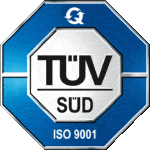Statistics show the positive impact of the training in tourism on operators working in the sector.
According to theWorld Tourism Organisation, the tourism industry contributed 10.4% to global GDP in 2019. A study conducted by Skift found that travellers who received a training in tourism are more likely to organise more satisfying trips and to return to certain destinations.
According to the US Bureau of Labour, it is expected that theemployment in the tourism sector will increase by 25% between 2019 and 2029, creating approximately 1.9 million new jobs.
These data show that training in tourism is a worthwhile investment both for travellers and for those wishing to pursue a career in the industry.
The benefits of training in tourism
The importance of training in the tourism sector is evidenced by the numerous benefits it offers.
1. Specialised skills
Training in tourism provides specialised skillsuseful for specific roles. These include the ability to analyse customer needs, to identify the best travel options and to create customised itineraries. These skills allow, for example, those working in the organisation of travel and tourist itineraries to offer unique and unforgettable experiences.
2. In-depth knowledge of destinations
Via training in tourism, one acquires an in-depth knowledge of the different destinations, learning to identify the main attractions, the lesser known but fascinating places and the unique activities offered in each place. This knowledge enables them to advise future travellers on the best experiences to have during their trips.
3. Problem-solving skills
Travelling can involve unforeseen events. Training in tourism provides the necessary skills to deal with and solve such situations. learning how to manage bookings, deal with service providers and find creative solutions to any challenges that may arise during travel. This problem-solving ability is a valuable skill for all tourism professions.
Training programmes in tourism: what to focus on
There are several options of training programmes in tourism to choose from.
- In-Presence Courses and Masters
Many training courses, specifically designed to provide the best possible training, which is enriched with state-of-the-art programmes, teachers with proven experience behind them and the use of the latest tools and instruments.
2. Specialisation courses
If you already have a basic training in tourism or you wish to focus on a specific area, specialisation courses may be the right choice for you. These programmes offer more focused training on topics such as the sustainable tourism or religious, event management or tourism destination management, wedding entrepreneurship and many more.
3. Online courses
For those who wish to learn but cannot attend a traditional course, online courses are an excellent option. These courses offer flexibility and allow you to study from anywhere, at any time, to learn basic skills or explore specific topics in depth through high-quality online courses.
Regardless of the type of programme chosen, it is important to ensure that it is organised by recognised institutions in the tourism sector.
How to choose the right tourism training programme
Choosing the right tourism training programme is crucial to gaining a solid foundation of knowledge and skills. Here are some factors to consider during your search:
1. Curriculum
Review the programme curriculum to understand what skills and knowledge you will be taught. Look for programmes that cover a wide range of topics, including practical aspects such as reservation management, itinerary planning and customer relationship management.
2. Internship or apprenticeship opportunities
Some training programmes in tourism offer internship or apprenticeship opportunities at companies in the sector. These field experiences will enable you to put into practice what you have learnt in the classroom and acquire practical skills that will be useful in your future career.
3. Student feedback
Research the opinions of students and the programme you are considering. Read online reviews, participate in discussion forums or contact former students to get an idea of the quality of education and opportunities offered by the programme.
Core skills and knowledge acquired through training in tourism
Training in tourism will provide you with a range of skills and knowledge that are essential to succeed in the industry. Here are some of the skills you will acquire during your training:
- Planning and organising travel, but also events or, more generally, the entire flow of activities related to the role
- Management of reservations and financial transactions
- Knowledge of different tourist destinations
- Troubleshooting and emergency management
- Effective communication with customers and service providers
- Use of technology and booking tools
Career opportunities in the tourism industry
Once completed your training in tourismyou will have a wide range of career opportunities to choose from. Here are some of the careers you could pursue:
1. Travel agent
As a travel agent, you will be responsible for planning and organising trips for your clients. You will have the opportunity to create customised itineraries, book flights and accommodation and offer advice on destinations and activities.
2. Tourist destination manager
As a tourism destination manager, you will be responsible for the development and management of tourism activities in a specific geographical area. You will have the opportunity to promote your destination, create tourist events and attractions, and collaborate with local service providers.
3. Responsible for hospitality
As a hospitality manager, you will be responsible for the management of hotels, resorts or other accommodation facilities. You will have the opportunity to ensure a high quality experience for your guests, manage staff and oversee the day-to-day operations of the hotel.
4. Travel expert
As a travel expert, you could work for a luxury travel agency or one that specialises in a specific type of travel. You will have the opportunity to create unique experiences for your customers, offering customised services and recommending the best destinations and activities.
5. Event Manager
The event manager is responsible for planning, organising and coordinating events of various types, such as conferences, weddings, trade fairs and concerts. He/she manages all logistical and operational aspects to ensure the success of the event.
6. Tour Guides
The tour guide accompanies visitors on tours and excursions to provide them with historical, cultural and practical information about the destinations visited. They must be passionate, communicative and have in-depth knowledge of the area.
7. Tourism Digital Marketer
The tourism digital marketer promotes tourist destinations, accommodation services and events through online marketing strategies. He manages advertising campaigns, social media, e-mail marketing and websites to attract tourists.
8. Event Coordinator
The event coordinator works closely with the event manager to support the planning and execution of events. He/she deals with logistical details, supplier management, communication with participants and more.
9. Tourism Content Creator
The tourism content creator produces engaging digital content, such as articles, photos, videos and guides, to promote tourist destinations and attract visitors. They must have a good knowledge of writing techniques and travel trends.
10. Hospitality Manager
He is in charge of the operational management of accommodation facilities such as hotels, resorts or bed and breakfasts. He supervises the staff, ensures that quality standards are maintained and deals with administrative and financial matters.

